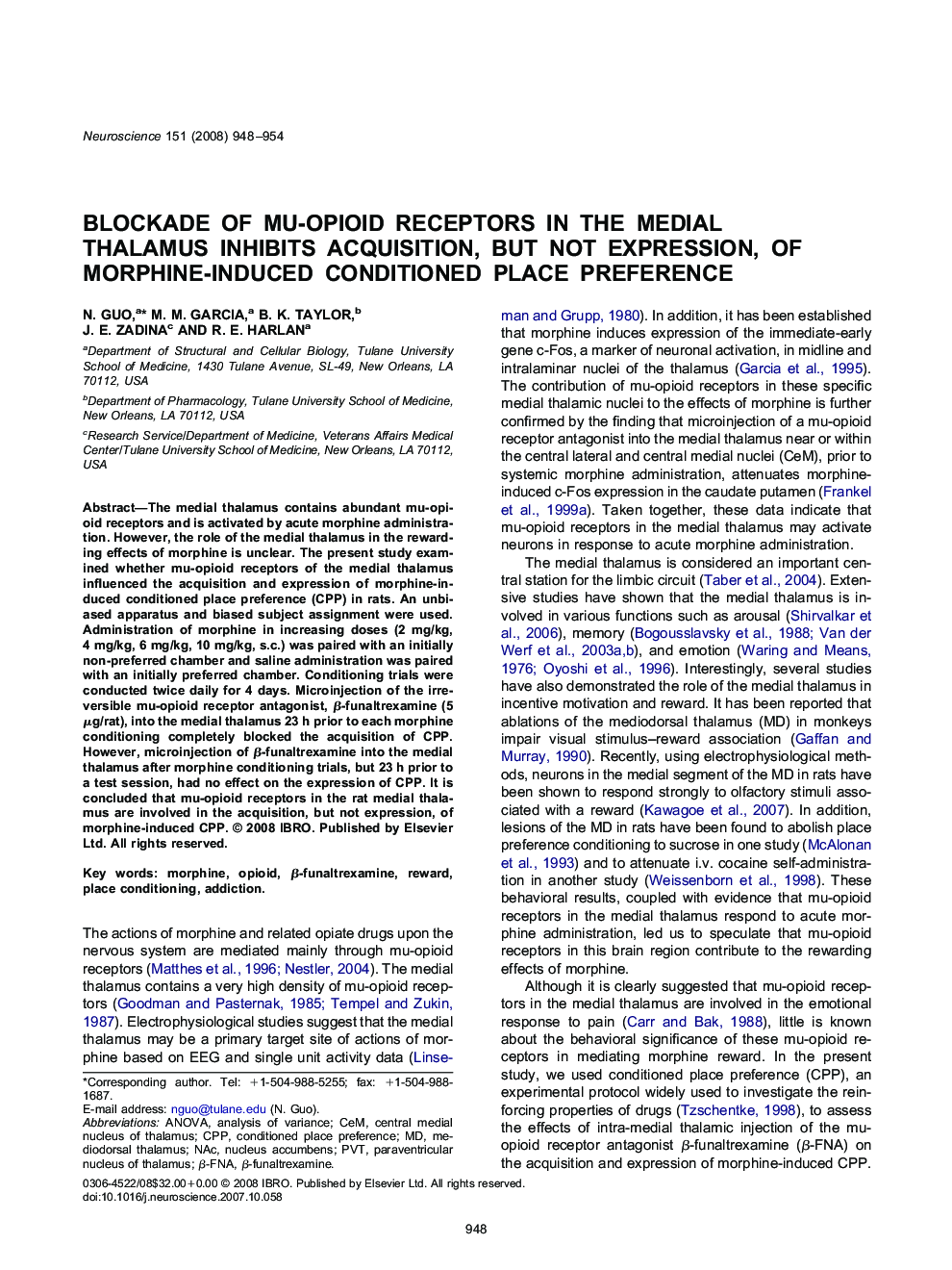| Article ID | Journal | Published Year | Pages | File Type |
|---|---|---|---|---|
| 4340753 | Neuroscience | 2008 | 7 Pages |
The medial thalamus contains abundant mu-opioid receptors and is activated by acute morphine administration. However, the role of the medial thalamus in the rewarding effects of morphine is unclear. The present study examined whether mu-opioid receptors of the medial thalamus influenced the acquisition and expression of morphine-induced conditioned place preference (CPP) in rats. An unbiased apparatus and biased subject assignment were used. Administration of morphine in increasing doses (2 mg/kg, 4 mg/kg, 6 mg/kg, 10 mg/kg, s.c.) was paired with an initially non-preferred chamber and saline administration was paired with an initially preferred chamber. Conditioning trials were conducted twice daily for 4 days. Microinjection of the irreversible mu-opioid receptor antagonist, β-funaltrexamine (5 μg/rat), into the medial thalamus 23 h prior to each morphine conditioning completely blocked the acquisition of CPP. However, microinjection of β-funaltrexamine into the medial thalamus after morphine conditioning trials, but 23 h prior to a test session, had no effect on the expression of CPP. It is concluded that mu-opioid receptors in the rat medial thalamus are involved in the acquisition, but not expression, of morphine-induced CPP.
